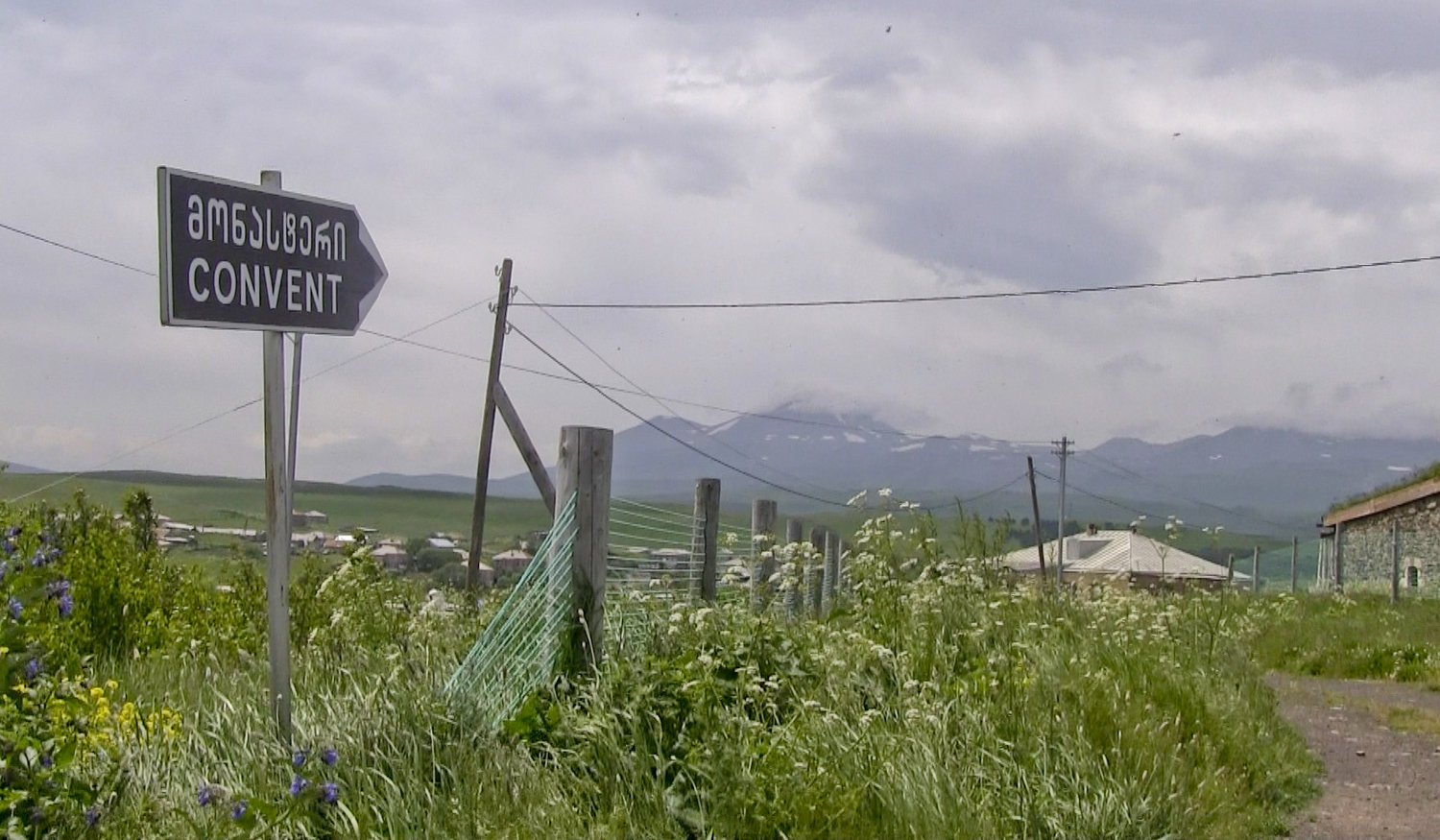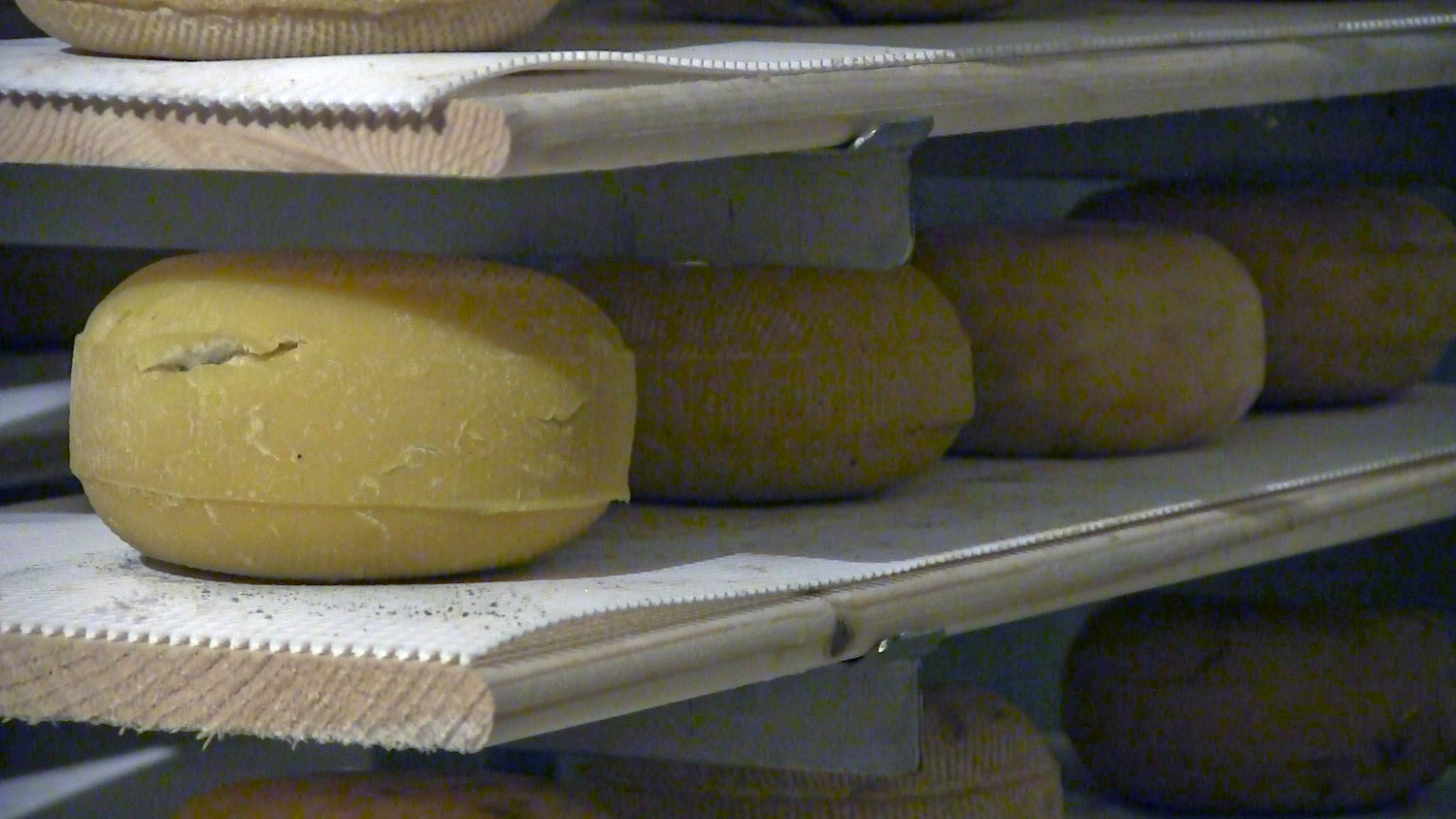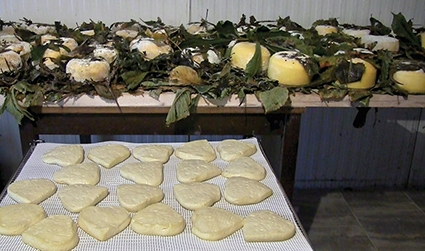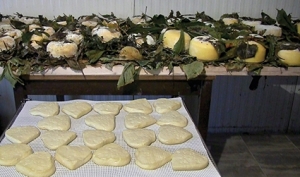Phoka Monastery Nuns and their Magical “Laboratory”
Five nuns and one novice live in St. Nino’s Nunnery, which opened in 1992 in the village of Phoka, Samtskhe-Javakheti, led by Mother Elisabed. They produce a European style of Georgian cheese, honey, chocolate and other products. The nuns also work on enamel and make mosaics.
In 1988, the Catholicos-Patriarch of Georgia, Ilia II, during a trip through the Javakheti region, bought a house near a church which had been built in the 11th century.
In 1992, the leader of the nunnery, Mother Elisabed, went to Phoka with two novices and started living in the house of the Catholicos-Patriarch with an Armenian family who lived there illegally. They shared the space, which was separated by just a curtain.

The nunnery first started to broaden its activities in 2001, producing a greater variety of products, the leading field being cheese-making.

The nuns produce 16 different types of cheese with European technology. They initially started by producing Georgian cheese, however, the harsh winter and closed roads made selling cheese very difficult, and it often became spoilt. The nuns were especially interested in Blue Cheese culture, first brought to the region by Catholic missionaries in the 18th century, where the older the cheese is, the more precious it becomes. Mother Rakil and Mother Shushanik visited a nunnery in France to learn this particular cheese-making method and when they returned, they started experimenting. Five years later, they started producing it themselves.

Next, the crafty nuns started producing artisan jams from local fruit. Now they produce approximately 40 types of jam. They also have honey in the nunnery- Mother Sidonia takes care of the bees.
The nuns also produce a few types of chocolate, available to buy in the little shop in the nunnery yard.
The 11th century church was renovated in 2000 and is now fully functional, decorated with enamel and mosaic, handmade by the nuns. The nuns started working on enamel in Phoka from 2002.
Later on, a school was opened in the nunnery in order to allow the nuns to form a better bond with the local community. Approximately 60 students learn Georgian and English there, totally free of charge. A lot of students have chosen to get a higher education in the Georgian language after graduating from the school.

This article was originally published on Chai Khana, winner of the 2015 EU Prize for Journalism for most informative online media, and the International ADAMI Prize for Cultural Diversity in Eastern Europe, is a multi-media platform seeking to revitalize the development of independent media in the South Caucasus for a more informed and engaged citizenry.
Maka Gogaladze, Chaikhana











